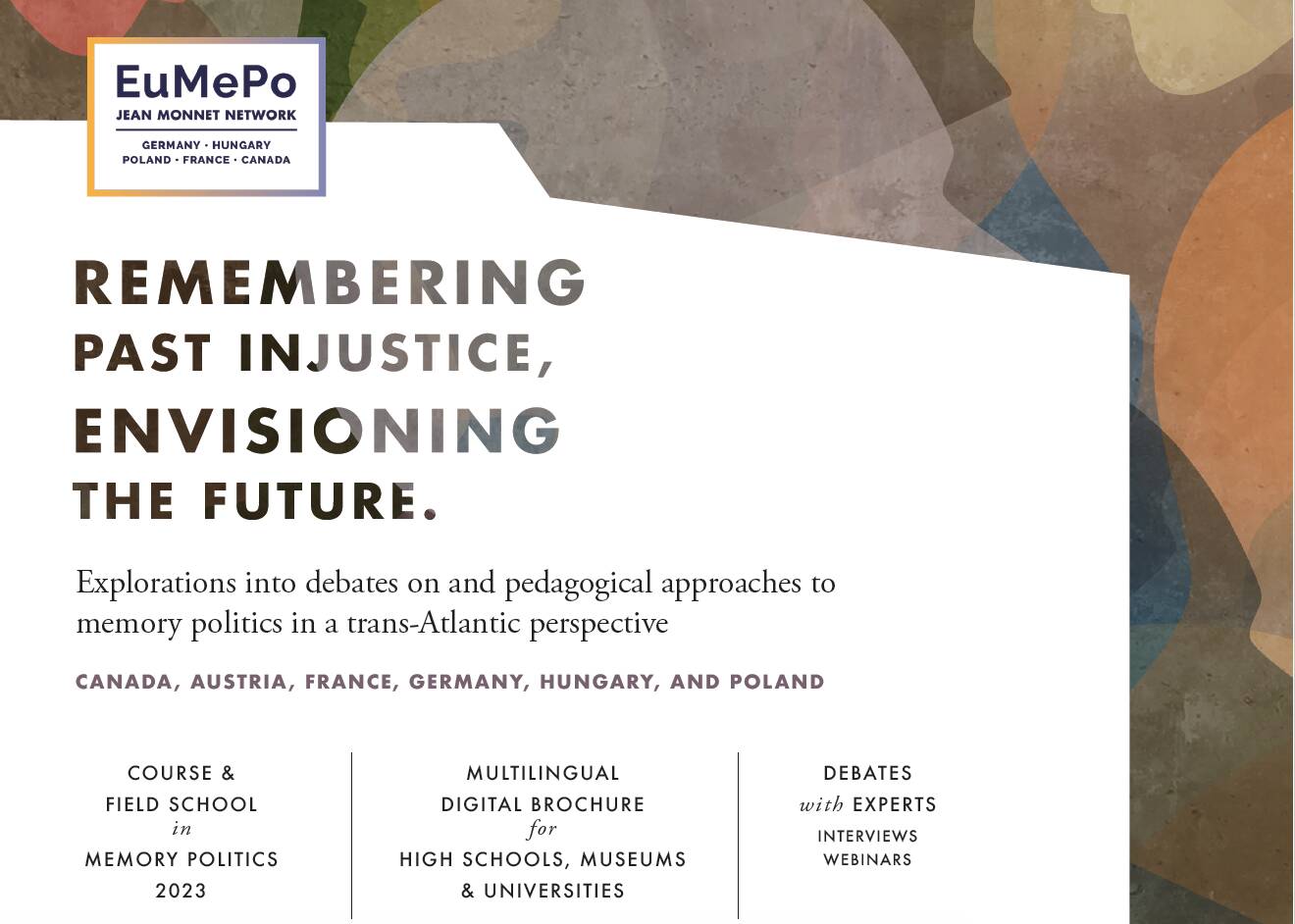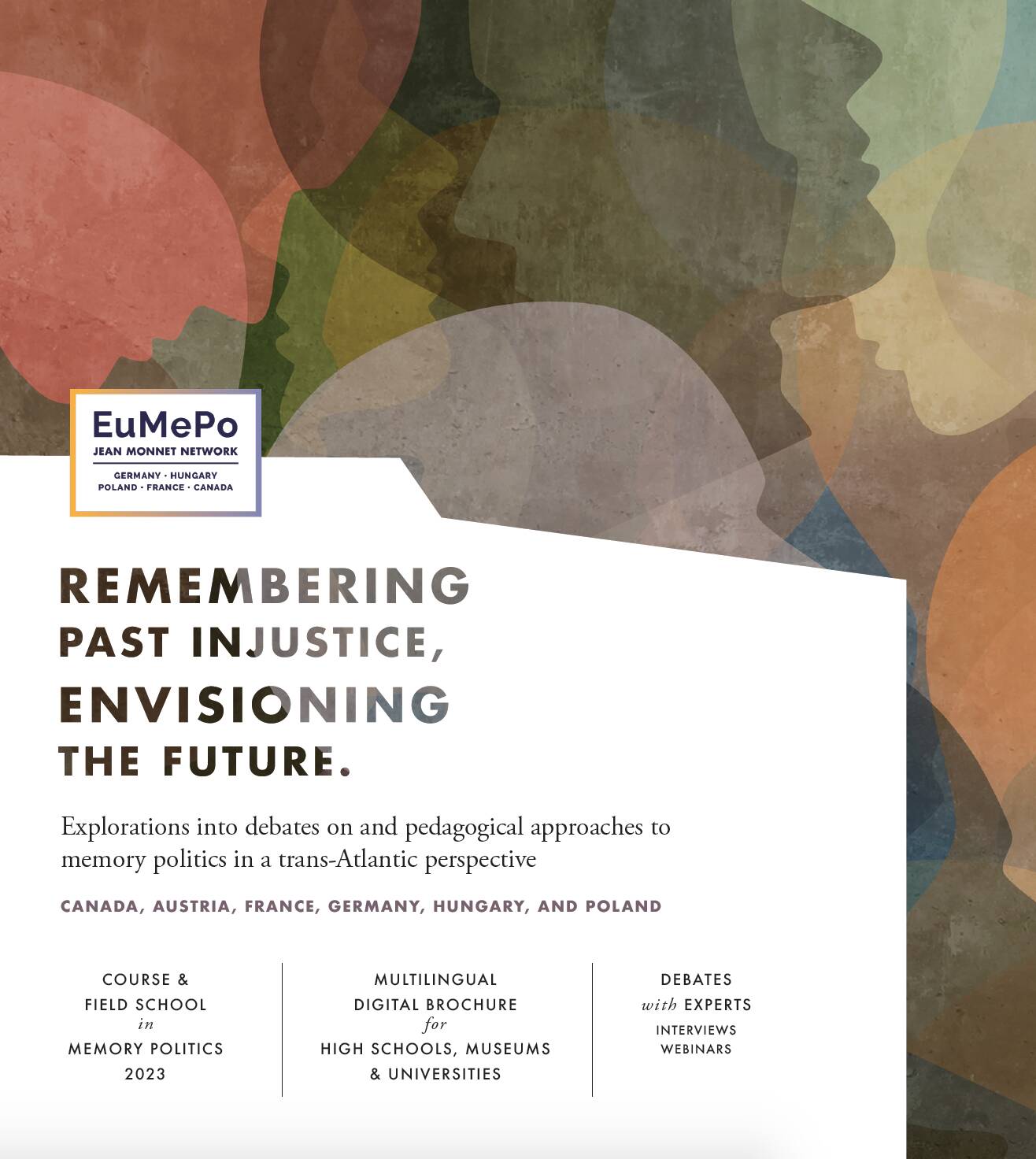Memory Politics: Explorations into Debates and Pedagogical Approaches in a Trans-Atlantic Perspective
Explorations into debates on and pedagogical approaches to memory politics in a trans-Atlantic perspective – EuMePo project brochure
Historical narratives are a driving force in how contemporary polities define their collective identity and visions for the political community. Over the past years, references to Fascism, National Socialism, and Communism have taken centre stage in mobilizing history for contemporary political struggles (most notably in Russia’s war in Ukraine or in the growing popularity of authoritarian nationalism). The following questions have been the focus of UVic’s Jean Monnet Network European Memory Politics: Populism, Nationalism, and the Challenges to a European Memory Culture (2019-2023, co-funded by the Erasmus+ Programme of the European Union) and the Konrad Adenauer Foundation Canada projects housed st the Centre for Global Studies at the University of Victoria.
How are the ‘Age of Extremes’ (Hobsbawm) and its atrocities remembered and politically mobilized in the 21st Century? In what way will the transformation in commemorating this past alter the anti-fascist commitment and the memory of the victims of war and genocide on which Western democracies have been based since 1945?
The projects have pursued these questions with the help of an interview series with experts, numerous webinars, an expert database, a sequence of high-profile publications and the development of new pedagogical approaches in the broader field of memory politics. One critical initiative to promote innovative experiential learning environments was the course “Remembering the Past Injustice – Envisioning the Future: European History and Memory Politics Field School 2023” led by Dr. Oliver Schmidtke and Janine Wulz at the University of Victoria in May-June 2023. It was designed around the three-week Study Tour in Memory Politics in Europe. The Study Tour was co-funded by the Erasmus+ Programme of the European Union and the generous support of the Konrad Adenauer Foundation Canada’s project Towards a Deepening East-West Division of Europe. In addition, the Study Tour received funding from the Social Sciences and Humanities Research Council and two grants from the University of Victoria (Nimrod Hungarian Mobility Award and the Experiential Learning Fund Grant).
In the brochure REMEMBERING PAST INJUSTICE, ENVISIONING THE FUTURE you will find a summary about the various elements of the European Memory Politics Study Tour (design, schedule, activities, pedagogical approaches, learning outcomes, major topics and students voices. In addition, the multilingual digital booket for high schools, museum and universities is featured in part two of the brochure and links provided to the versions in English, French, German and Polish. Last but not least, in part three, a collection of the summaries and links to webinars and short expert videos on memory politics in a trans-Atlantic perspective provide an excellent source on debates on current issues related to the contested field of memory politics.


